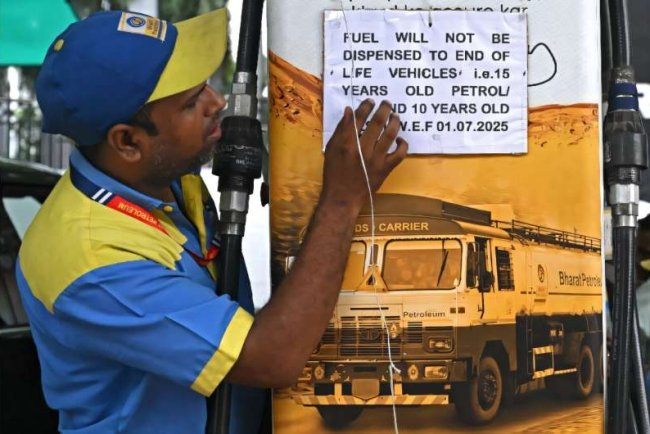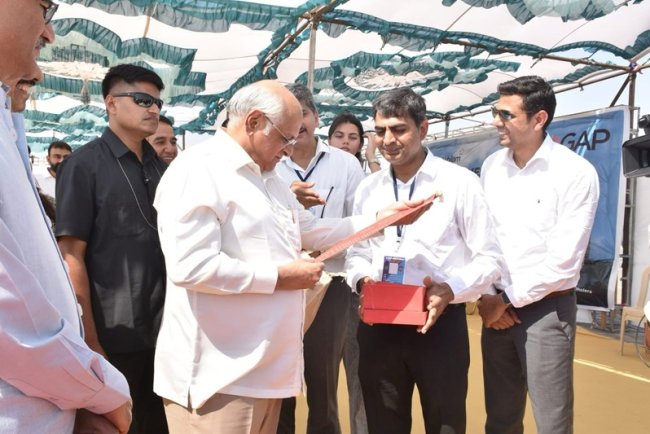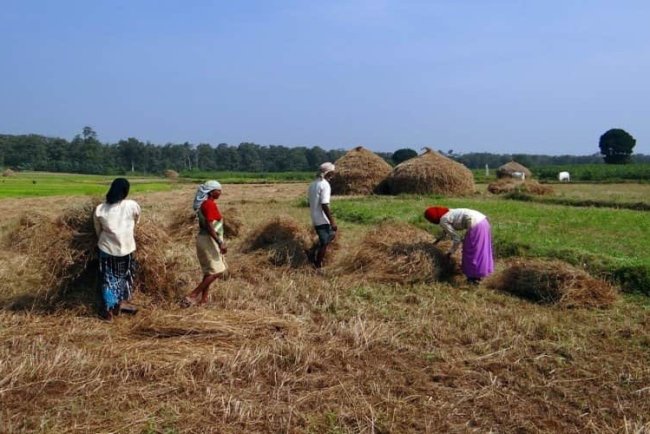Global South Takes Charge: India Leads the Way on Climate Action at Summit 2025

India Takes Global Climate Leadership, Hosts Union Minister Bhupender Yadav at World Sustainable Development Summit 2025
India is fast becoming the world climate leader, and the Global South will take the lead in setting the climate agenda, Union Minister of Environment, Forest and Climate Change Bhupender Yadav stated in his speech at the World Sustainable Development Summit 2025. The TERI-conducted summit had "Partnerships for Accelerating Sustainable Development and Climate Solutions" as its theme.
As he started his speech, Sh. Yadav emphasized India's continued focus towards sustainability and India's leadership in lowering greenhouse gas emissions. He recognized that India lowered emissions by 7.93% even in the year 2020 itself, demonstrating the nation's resolve towards embracing action towards climate change.
The Union Minister also emphasized the increasing relevance of the Global South in determining the climate change discourse. He urged greater global cooperation, especially since most of these nations, including India, are worst hit by the effects of climate change but also bear a great responsibility to provide actionable solutions in the form of sustainable development. He reaffirmed India's strong commitment to combating climate change, with Prime Minister Narendra Modi spearheading much of the world's work in environmental protection and resilience. Some of the highlights include International Solar Alliance (ISA), Coalition for Disaster Resilient Infrastructure (CDRI), and Mission Lifestyle for Environment (LiFE).
Indian leadership in the climate domain, Sh. Yadav further noted, is also evident in its approach to overcoming challenges in biodiversity and wildlife protection. The Union Minister also spoke about the need for addressing "speciesism," or the preference for human interests to the welfare of other species. He insisted that policies need to change in a way that ecosystems and wildlife are protected and restored to their former glory and that ecological sustainability is feasible only when the well-being of all types of life is given equal importance.
The Union Minister also stressed that the developed world must honor the commitment under the Paris Agreement, specifically in terms of sharing with developing countries the benefits of technology and finance. India has continuously raised the issue of imbalance during climate negotiations at the international forum, where developing countries are disproportionately exposed to climate change effects and the developed countries have the financial means and technologies available for reducing and adapting to the impacts.
A recurrent thread that could be noticed while presenting Sh. Yadav's speech was just the overwhelming urgency of going forward with climate adaptation finance. Citing the UNEP Adaptation Gap Report, he also highlighted the gravity of stepping up adaptation financing, especially to the poorest areas in the world most vulnerable to being affected by the effects of climate change. He urged international institutions and governments to honor their commitment to finance adaptation measures that enhance resilience and safeguard livelihoods in exposed places. Sh.
Yadav also detailed India's strategy to have a "Viksit Bharat" (Developed India) in 2047 and net-zero emissions by 2070. The Union Minister also mentioned India's strong track record of lowering the emission intensity of its GDP by 36% from 2005-2020 and the ambitious goal of lowering emissions by 45% by 2030. This, he said, was all in the direction of India's holistic approach towards sustainable development that entails scaling up the clean energy capacity and constructing local industry of green tech. The government's new budget also tapped into energy security and green technology innovation, as part of India's overall approach of linking climate action with the Sustainable Development Goals (SDGs). Sh. Yadav also stressed the importance of strong international partnerships in order to tackle cross-cutting issues like poverty, inequality, and pollution. He also urged reforms in global governance so that equity and justice are placed at the forefront of climate negotiations.
The summit also presented a platform to discuss the complexities of climate change, hoping towards the necessity for multi-sector action to drive the world towards a sustainable, low-carbon world. Sh. Yadav also welcomed TERI for initiating an effort to gather the Global South to discuss action on climate change, highlighting the necessity for shared action to tackle these urgent issues.
Finally, the Union Minister reaffirmed India's resolve to making its climate efforts cooperative, ambitious, and inclusive. He emphasized greater global cooperation towards the upscaling of Nationally Determined Contributions (NDCs) and reaffirmed that these should be reality-based, considering realities of climate challenges and opportunities both.
World Sustainable Development Summit 2025 was addressed by various dignitaries such as Prime Minister of Guyana, HE Brigadier Mark Phillip, and HE Ms. Marina Silva, Minister of Environment and Climate Change of Brazil, among other and world leaders. The summit highlighted the emerging globality of the Global South in shaping global climate policy and the importance of partnerships in driving solutions for sustainable development.
What's Your Reaction?

















